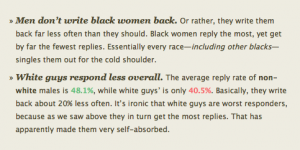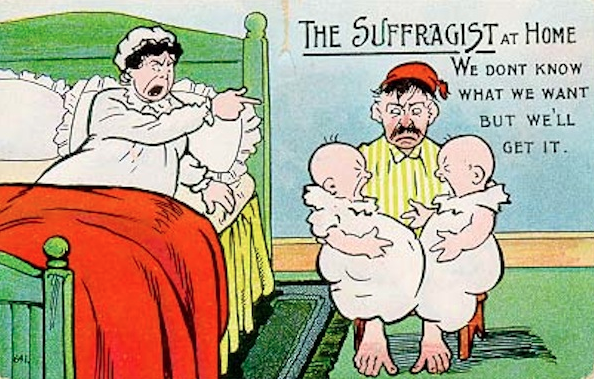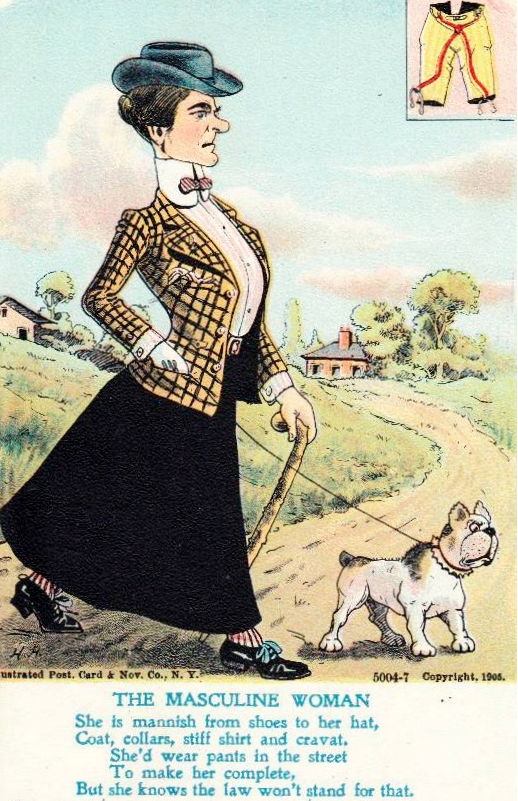The first time I heard someone refer to discrimination as “preference,” I was exchanging in small talk with a fellow student. I thought the question he asked me was strange.
“Do you have a preference for who you date, like you don’t date black guys or Asian guys?”
“No, I don’t have a preference. Why? Do you?”
“No, I mean I’ll date all races pretty much, except I don’t really date black girls.”
“Why?”
“Um, I don’t know, it’s just a, um, attitude thing I guess.”
There is racism that happens behind closed doors, the consequences of which bubbles up in both large and small inconveniences to people of color every day. It is the kind of racism that people sense but aren’t 100 percent positive of because they can’t see the evidence, such as a potential employer discarding a resume emboldened with the name “Maria Cruz” or someone questioning if a black politician is able to connect to his or her life values. But one of the last acceptable and most brazen forms of racism comes from the carefree ability some men, white men in particular, are comfortable telling people they have excluded an entire race from their dating prospects, whether in person or on an online dating site.
Here are the results of an OKCupid survey on the relationship between the race of the person messaging and likeliness the person will message them back:
I don’t know how people discern their preference to date only one, two or three races from racism in its purist form. When challenged on it, men often say they are just picking physical criteria, like preferring blue eyes or blonde hair. But it isn’t, considering how these characteristics vary so widely from within one race. A Hispanic woman can have blonde hair, but it often isn’t blonde hair that these men are worshipping, it’s the idea of whiteness itself.
Historically, white and Asian women have been “awarded” all of the femininity stereotypes, such as being perceived as innately demure, and nurturing. If a man is interested in dating only white women and/or Asian women, it is a red flag to me that not only is this person racist, which is bad enough, but he is likely a misogynist as well. It tells me that this man is looking for a woman who fits a narrow definition of femininity, one that reduces me to the Madonna side of the Madonna/Whore complex.
Conversely, black women are portrayed as my fellow student expressed. They have an “attitude,” which is code for “emasculating.” Black women (as well as Hispanic women) have also been labeled as promiscuous and less intelligent. If you have any doubt, look at Gone With The Wind, with its masculine Mammy or dumb and irresponsible Prissy or more recently Ally McBeal’s independent and flirtatious best friend Renee, whose overt sexuality lands her in trouble and Modern Family’s bubbly and irrational Gloria.
I’m surprised, though perhaps it’s naive, that some of my white feminist friends aren’t really appalled by the “preference” problem. Whatever gender biases white women face, women of color face them to a magnified degree. Every gender stereotype, from being manipulative to too masculine, are all charges men level at women of all colors when they wish to minimize our power. By not challenging the preference statement, due to some unconscious apathy or their own inner racism, white feminists are supporting another system of inequality as well as supporting the same gender tropes they also suffer from.



